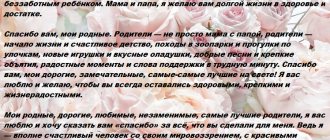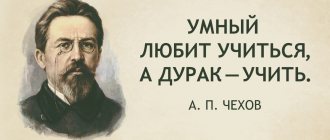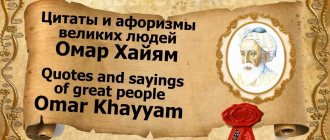“Get me away from these dogs!”
Ernst Lissner.
Copper riot of 1662 in Kolomenskoye In the Temple of the Kazan Icon, the house church of his palace in Kolomenskoye near Moscow, Alexey Mikhailovich was listening to a mass on the occasion of the birthday of his sister Anna on July 25, 1662, when a crowd of almost five thousand burst into the back gate of the sovereign's courtyard, crushing the Streltsy guards. armed Muscovites. The king had to negotiate in person. Before this, he sent the boyars and closest advisers to the female half of the palace, whom the crowd wanted to tear to pieces.
Among those hiding in the Tsarina’s chambers was Fyodor Rtishchev, a okolnichy (by rank - minister) and the author of the monetary reform of 1656 - the introduction of minting copper money. The treasury received funds to wage the war, and the people became impoverished. Now they wanted to kill Rtishchev with their own hands, as was the case during the Salt Riot of 1648 with clerk Leonty Pleshcheev, who was “killed to death by all the people with stones and sticks” on Torg (Red Square), without even allowing him to be brought to the prepared chopping block.
Stamps "TAT" ("thief" - thief), used in the 17th century. The brand “buki” (rebel) looked the same.
Then, in 1948, there weren’t enough people. Now they demanded the “uncle” of the sovereign, boyar Boris Morozov, and 18-year-old Alexei went out onto the porch and begged the people to forgive the boyar, and even cried. This time the king was presented with a petition; During the conversation, someone held him by the button on his clothes, and then one of the townspeople “beat his hands” - with the tsar, whom the first boyars were afraid to touch. While negotiations were ongoing, two regiments of archers loyal to the sovereign arrived at the sovereign’s court in Kolomenskoye.
In 1648, the tsar’s horror was that the archers took the side of the rebels - they were also affected by the salt tax. The Tsar put the experience to good use and fed the guard all these years. Now, having heard about the arrival of the troops, he immediately threw off the guise of a good tsar-father and ordered to “sweep and chop without mercy.” Some sources report the king’s phrase: “Deliver me from these dogs!”
The quietest one had a furious temper and could not restrain himself in moments of anger. In Kolomenskoye, from seven hundred to a thousand people were hacked to death and drowned in the river, up to 150 people were hanged, several thousand were branded with the letter “b” on their left cheek and exiled to Siberia.
Alexey Mikhailovich
There is a temptation to imagine Alexei Mikhailovich as a kind of popular popular print king, a kind bearded man in a Monomakh hat. But a person breaks out of this image. Diligent and talented, who did not like idleness, he did a lot for the Europeanization of the country. But the flip side of his piety was an amazing superstition and vindictiveness. Alexey Mikhailovich was the creator of the first institution that dealt with state security: the Order of Secret Affairs.
Original phrases
Some people seriously believe that they are much better than others. Yes, this may well be the case if the prerequisites are present, but for the most part, those who imagine themselves to be kings do not represent anything at all. Royal statuses on VK and other social networks will allow you to feel like a truly important person of those times, have fun and chat with friends, attract the attention of page visitors and develop your own imagination. Excellent phrases of this type stand out among the total number of aphorisms, because they contain difficult words and expressions, which adds zest and makes all friends rate:
- A wise king is always ready for war, but a foolish one is always trying to start one.
- Father Tsar, what should you feed your dragon? Yes, he feeds only on innocent virgins. Well, that means he will have to die here, there are none...
- Democracy means that the tsar will still have to lie a lot and invent fables.
- You shouldn’t be upset over trifles, and you shouldn’t be upset for serious reasons either; even King Solomon wore a ring with the inscription that everything passes, this too will pass.
- One day the Tsarevich comes to the Tsar and gives him the head of the Serpent Gorynych, and he gives him the bride’s return hand.
- At all times, men were called kings, but they always worshiped only women's legs.
- Dear Tsar, they didn’t order to execute, they ordered to say a word. Come on. You are a real goat, and now you can execute me.
- The Chinese believe in the superstition that only holy people sleep on their backs, sinners sleep on their stomachs, and only kings and sages sleep on their sides. It turns out that I am one hundred percent king, you can’t argue with that.
- The king strokes and sees nothing else...
- “I am the king of all Rus', and you are all mortal slaves.” This is correspondence in ancient times, not like now: “How are you, hello.”
- I am real gold, which even the king cannot buy, despite the fact that they only hug me with their arms.
- Man is the king of nature, I thought when I was cleaning the toilet after the cat.
- Self-esteem is quite average, we kings are simple people.
- Who was the last person in line to be king?
- Incoming calls should be answered like this: “The king is listening.”
- After the watchman stopped feeding the lion, he realized that it was the watchman who was the king of the beasts.
- The king decided to abdicate the throne and get drunk with me.
- Wise kings will never seek war, but will always be ready for it.
- In my head, the king decided to abdicate the throne.
- Man is the king of nature, but flies still don’t know about it.
- They may be kings and gods, but they always kiss women’s feet!
Royal statuses will always attract the attention of page visitors and allow you to rise in their eyes, as well as laugh a lot and have a good time chatting!
Detective, witchcraft and a lump from drunkenness
Interior exhibition of the Front Gate in Kolomenskoye, imitating the decor of a 17th-century administrative hut.
The staff of the Secret Affairs Order was no more than 10 people. It was headed by a civil official - a clerk, controlled only by the sovereign. Under the clerk there were clerks who could carry out supervisory functions: “Clerks are sent to that order with ambassadors to states and to ambassadorial congresses and in wars with governors... And those clerks over ambassadors and over governors spy and when they arrive they tell the tsar,” wrote G. Kotoshikhin . But the Order was not only a secret police.
Cases from other orders that were especially important for the tsar were transferred there. The business of Patriarch Nikon was conducted here; there was also supervision over the “grenade” (weapons) factories. The order was in charge of the tsar's favorite hunting birds - falcons and gyrfalcons, and managed the falcon yards on Sokolinaya Mountain in Moscow.
But, of course, the main function was internal political investigation. It was forbidden to involve boyars and Duma nobles in the affairs of the order - in many ways he supervised them. But detective cases also included cases of insulting the sovereign’s name, witchcraft, witchcraft, threats to the sovereign’s life... These cases reveal all the suspicion and paranoia of Alexei Mikhailovich.
The draft census book of documents from the Order of Secret Affairs - the main source on this institution - shows that Alexei Mikhailovich often ordered documents from the era of Ivan the Terrible to read for himself. The Tsar may have modeled the Order on the model of the orders of the Oprichnina court, that is, the institutions in charge of the affairs of the “oprichnina” lands. But the similarities of the sovereigns lie in another way - cruelty.
Royal mansions in the Terem Palace of the Moscow Kremlin
Chudinka Sumarokov, a servant of boyar Morozov, was shooting at jackdaws with a slingshot. This happened within the walls of the Kremlin, not far from the sovereign’s mansion, “and from that shooting of his, the bullet went into the royal mansion.” Chudinka lost his left arm and right leg.
Grandmother Marfa Timofeevna stole a mushroom from the royal tray and took a pinch of salt to salt it. When they asked her what was in the pinch, she ran into the next room and poured the salt on the floor. Investigation, torture, Martha was raised on a rack, burned with fire and asked if she was a fortune teller.
Even under Alexei’s father, Mikhail Fedorovich, “healer” affairs were carried out. In 1638, the workers of the Tsarina’s linen workshop reported on the craftswoman Daria Lamanova that she had stolen fabric for the sovereign’s shirts. During the investigation, it turned out that Daria knew the healer Grandma Nastasitsa and - horror - sprinkled ashes on the Tsaritsyn’s trail.
In the end, five healers were involved in the case; While he was being led away, a young son died in the royal family, followed by a newly born son. Panic grew until some healers died under torture and others were exiled; They extracted from Daria that she sprinkled the ashes so that the queen would be kind to her.
In such an atmosphere, little Alexey grew up, who, according to custom, until the age of 5 was raised in the female half. Therefore, with all his piety, the king believed in witchcraft, slander against health, damage, and so on. It is known, for example, that the king often visited the church of St. Antipia in the Kolymazhny yard (preserved) and once even put “two silver teeth” - St. Antipius was prayed to in case of toothache.
Church of the Hieromartyr St. Antipius at Kolymazhny Yard, Moscow
The Tsar, like most Russians, did not trust doctors. He had expensive foreign doctors at his disposal, but the king did not even allow them to examine him. The doctors could only make diagnoses from the words of the courtiers and examine and smell the urine of the king and members of his family. In recent years, desperate to be cured of high blood pressure, the king carried a whole chest of herbal medicines with him to his residences, hoping to independently find a cure for his ailments.
But one day it was reported to the tsar that the farrier Lev Sergeev was giving boyar Yuri Miloslavsky’s servant, Mikhail Serebrenin, “a drink to suck, a hop cone tied in a cloth, in order to forbid him from drinking” (that is, to wean him from drunkenness). Sergeev was tortured: “Didn’t that platter with hops give you to drink for damage?” The horse-driver Sergeev withstood the torture, constantly repeating that the lump was only from drunkenness, but he was still exiled to Astrakhan.
“My leg is better than that of the Tsar and Grand Duke of All Rus'!”
“The sovereign's word and deed!” These were the words that had to be said if you knew anything about plans against the life or honor of the sovereign. According to the laws of the Council Code of 1649, failure to report in such cases was also severely punished. This arrangement encouraged mass snitching. And insulting the sovereign was punishable not only by exile, but also by cutting out the tongue.
“...The great sovereign indicated and the boyars sentenced the Murashkin boy Ilyushka Porshnev for speaking obscene words about him, the great sovereign - to cut out his tongue and exile him with his wife and three children to Siberia and ordered that execution to be carried out in front of many people.”
What could such “obscene words” be? They are cited in his book “Secrets of Faded Lines” by historian R. T. Peresvetov:
“The young sovereign is stupid, but he sees everything from the mouths of the boyars, Boris Ivanovich Morozov and Ilya Danilovich Miloslavsky. They own everything, and the sovereign himself knows and knows everything, but remains silent, the devil has taken his mind,” said the man Savva Korepin.
“It’s a shame, sir, that you don’t force the archers to dig the ground with us,” complained the peasant Danilo Markov, who was digging a trench under the supervision of the archers. The archers reported on him.
Rack
“Just as I don’t see my son in front of me, so would the sovereign not see this light,” the Cossack wife Arina Loboda said to herself to her death about her son, who was not redeemed by the state from Turkish captivity.
“My leg is better than that of the Tsar and Grand Duke of All Rus' Alexei Mikhailovich,” boasted the narrow-minded boyar’s son Afanasy Shepelev. Judging by the fact that records of these words were preserved in the inventories of the Order of Secret Affairs, punishment for the listed citizens could not be avoided. Some went into hiding even before the investigation began.
“You, Eustratus, have become better than the king!” - boyar son Dmitry Shmaraev praised his neighbor Evstrat Tuleninov for lending him oats for seeds. Frightened by such praise, Evstrat hastened to inform the governor about this, after which Shmaraev could only “run away unknown.” Now you can easily say this to a friend - “dude, you reign!” Under Alexei, terrible punishments were imposed for this.
Execution by hanging by the rib. On the left is a “female” execution by being buried in the ground up to the waist.
“If the Tsar Tsar and Grand Duke Alexei Mikhailovich were healthy, I, Evtyushka, would be different,” said Evtifei Bokholdin at a neighbor’s wedding and ended up in prison - how dare he mention himself in the same sentence with the name of the Tsar?
Why, it was enough not to take off your hat when the name of the sovereign was mentioned during a service in the church - and they would already denounce you. A case was opened against the peasant Grigory Sheltyakov for “sleeping, leaning against the wall, when the Assumption priest Ivan, who came to visit the janitor Orek Sedelnik, proclaimed many years to the Tsar. No matter how much they pushed Grigory in the side and back, he did not move because, as it turned out later, “he was drunk beyond memory.”
Alexei Mikhailovich's contemporaries had plenty of reasons to consider their era unhappy. Church schism. The total solar eclipse of 1654, which in Rus', in the context of a flaring plague epidemic, was perceived as a terrible heavenly sign.
But the main event for the majority of Russians was the announcement of an indefinite search for fugitive peasants in accordance with the same Council Code of 1649. This meant the final consolidation of the peasants on the lands of their landowners, and many peasants completely disagreed with this order. Moreover, now the responsibility was not only on the peasants, but also on the landowners who sheltered other people's peasants. Alexei's reign ended with a bloody peasant war.
Phraseologisms for “king”
Author: Dmitry Sirotkin
Prepared a selection of phraseological units for the word king .
It includes more than 25 phraseological units.
They are grouped by topics: intelligence and stupidity, different kings, a fairy-tale kingdom, accession to the throne, ancient times, different kingdoms, conversion from above, poets about the royal. The meanings of phraseological units are given.
Phraseologisms about intelligence and stupidity
- The king is in the head (mind, intelligence; intelligence)
- With a king in his head (smart, smart, very smart) - by the way, phraseological units with intelligence
- Without a king in my head (very stupid, narrow-minded)
- The king of heaven's oaf (fool, fool, dullard, blockhead)
Phraseologisms about different kings
- King of Heaven (God) - by the way, phraseological units about heaven
- The king of nature (man) - by the way, phraseological units about man
- Tsar and god (tyrannical person enjoying unlimited power)
Phraseologisms about the fairy-tale kingdom
- In some kingdom, in some state... (somewhere, once upon a time... (fairytale beginning))
- Far Away Kingdom (a very distant country, land)
- The Thirtieth Kingdom (a very distant country, land)
Phraseologisms about accession to the throne
- Set foot on the kingdom (begin to reign, become a monarch)
- Sit down as king (start reigning, become a monarch) - by the way, phraseological units with sit down
Phraseologisms about ancient times
- Since the time of the king of peas (for a long time, for a long time)
- Under the king of peas (a very long time ago, in time immemorial) - by the way, phraseological units with time
Phraseologisms about different kingdoms
- Dark Kingdom (ignorant, inert social environment)
- Indian kingdom (dominance, accumulation of women)
Phraseologisms with appeal from above
- Lord to the king of heaven (expression of fear, regret, amazement)
- Kingdom / kingdom of heaven (wishing the deceased an afterlife in paradise) - by the way, phraseological units from the Bible
Other phraseological units about the royal
- The royal court (the king and his entourage, courtiers)
- Aqua regia (a mixture of nitric and hydrochloric acids, acting on gold)
Winged expressions of poets for “king”
- Horse! Half a kingdom for a horse! (W. Shakespeare, “King Richard III”)
- It is better to reign in hell than to serve in heaven (D. Milton, Paradise Lost)
- I am a king, I am a slave, I am a worm, I am a god! (G.R. Derzhavin, “God”, see Derzhavin’s catchphrases)
- The crafty courtier (A.S. Pushkin, “Boris Godunov”, see popular expressions from “Boris Godunov”)
- Servant to the Tsar, Father to the Soldiers (M.Yu. Lermontov, “Borodino”, see Lermontov’s catchphrases)
- Tsar Hunger (N.A. Nekrasov, “The Railway”, see Nekrasov’s catchphrases)
As you can see, most of the phraseological units for the word king have a certain old-regime connotation . And gradually the “royal” phraseological units are shifting to the area of fairy tales and ancient times. However, some of them have been successfully preserved in the living Russian language.
Also noteworthy is the noticeable presence of the royal theme in the winged expressions of the poets.
I myself most liked the phraseological units “the king in the head” and “the crafty courtier” by Pushkin.
Below you can check out other collections:
- Historical phraseological units: Russia and the USSR
- Phraseologisms with the word Russian
- Phraseologisms for the word banner
- Phraseologisms from Pushkin's fairy tales
- Winged expressions of Ancient Rome
I would be grateful if you share the link to the article on social networks with your friends. Use the network buttons below .
Comments are also highly welcome!








